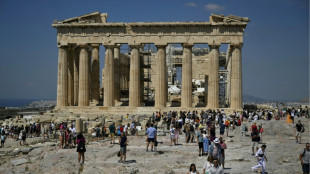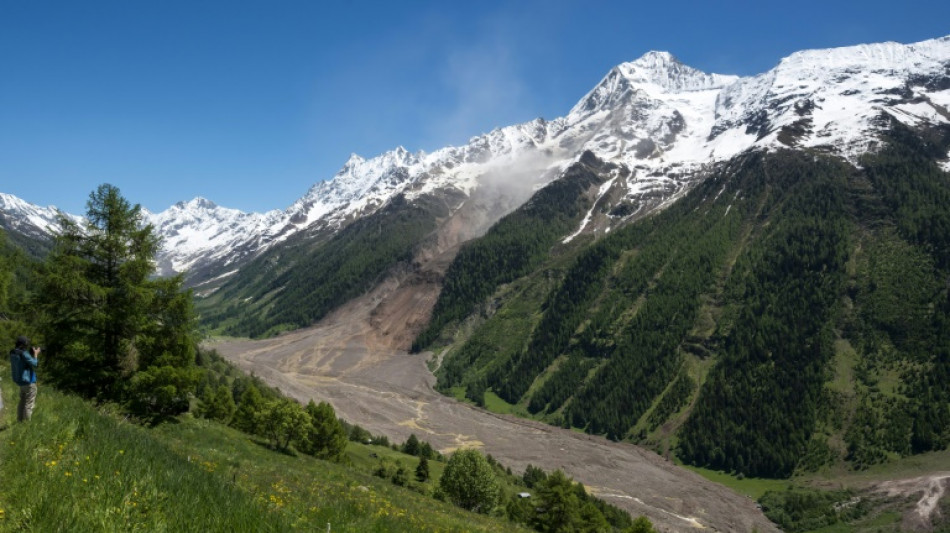
-
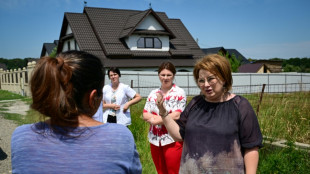 Doctors fight vaccine mistrust as Romania hit by measles outbreak
Doctors fight vaccine mistrust as Romania hit by measles outbreak
-
Fritz fights through to reach ATP Toronto Masters quarters

-
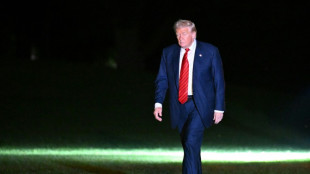 Trump confirms US envoy Witkoff to travel to Russia in coming week
Trump confirms US envoy Witkoff to travel to Russia in coming week
-
Mighty Atom: how the A-bombs shaped Japanese arts
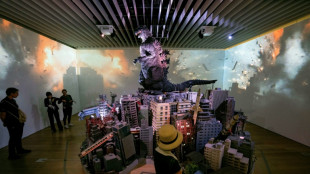
-
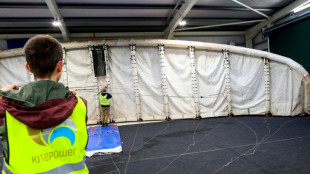 'Let's go fly a kite': Capturing wind for clean energy in Ireland
'Let's go fly a kite': Capturing wind for clean energy in Ireland
-
Pakistan beat West Indies by 13 runs to capture T20 series

-
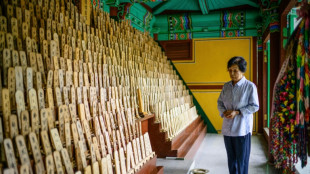 80 years on, Korean survivors of WWII atomic bombs still suffer
80 years on, Korean survivors of WWII atomic bombs still suffer
-
Teenage kicks: McIntosh, 12-year-old Yu set to rule the pool at LA 2028

-
 New Zealand former top cop charged over material showing child abuse and bestiality
New Zealand former top cop charged over material showing child abuse and bestiality
-
Bangladesh ex-PM palace becomes revolution museum
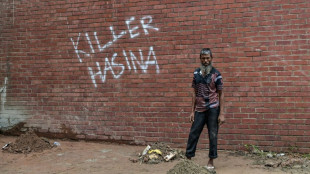
-
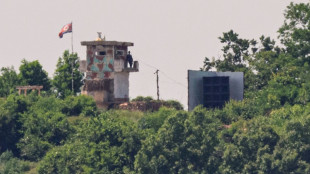 South Korea begins removing loudspeakers on border with North
South Korea begins removing loudspeakers on border with North
-
Asian markets fluctuate as traders weigh tariffs, US jobs
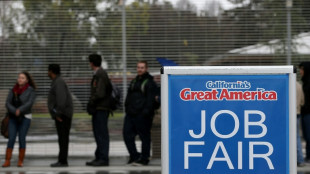
-
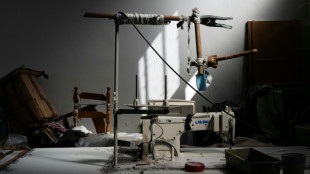 Italy's fast fashion hub becomes Chinese mafia battlefield
Italy's fast fashion hub becomes Chinese mafia battlefield
-
Trump confirms US envoy Witkoff to travel to Russia 'next week'
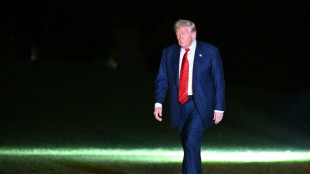
-
 Australia name experienced squad for Women's Rugby World Cup
Australia name experienced squad for Women's Rugby World Cup
-
Netanyahu asks Red Cross for help after 'profound shock' of Gaza hostage videos

-
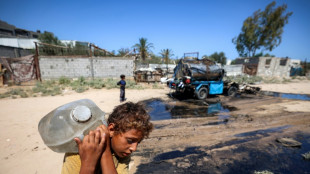 Dire water shortages compound hunger and displacement in Gaza
Dire water shortages compound hunger and displacement in Gaza
-
Philippine, Indian navies begin first joint South China Sea patrols

-
 AI search pushing an already weakened media ecosystem to the brink
AI search pushing an already weakened media ecosystem to the brink
-
New Zealand former top cop charged over child porn, bestiality material

-
 Messi out indefinitely with 'minor muscle injury': club
Messi out indefinitely with 'minor muscle injury': club
-
Robertson names one uncapped player in All Blacks squad

-
 Swiatek crashes out of WTA Canadian Open, Osaka races through
Swiatek crashes out of WTA Canadian Open, Osaka races through
-
Lyles says best to come after testy trials win

-
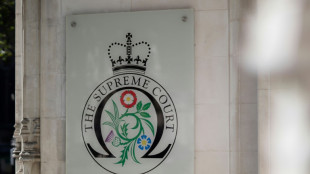 UK lenders face $12 bn plus compensation bill despite court ruling: watchdog
UK lenders face $12 bn plus compensation bill despite court ruling: watchdog
-
Man United draws Everton, West Ham blanks Bournemouth in US tour finales

-
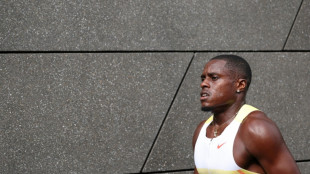 Coleman defends 'great person' Richardson after assault controversy
Coleman defends 'great person' Richardson after assault controversy
-
Lyles, Jefferson-Wooden storm to victories at US trials

-
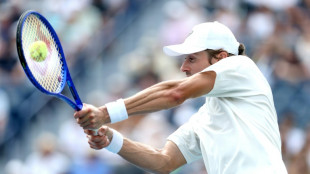 De Minaur survives Tiafoe to reach Toronto quarter-finals
De Minaur survives Tiafoe to reach Toronto quarter-finals
-
Young captures long-awaited first PGA Tour win at Wyndham Championship

-
 Osaka roars into WTA Montreal quarter-finals as Keys fights through
Osaka roars into WTA Montreal quarter-finals as Keys fights through
-
West Ham blanks Bournemouth in Premier League US series

-
 White's two homers drive Braves to 4-2 win over Reds in MLB Speedway Classic
White's two homers drive Braves to 4-2 win over Reds in MLB Speedway Classic
-
Bolsonaro backers rally to praise Trump for Brazil pressure

-
 Richardson exits 200m at US trials, Coleman through
Richardson exits 200m at US trials, Coleman through
-
Ferrari boss confident 'frustrated' Hamilton will bounce back after Hungarian GP
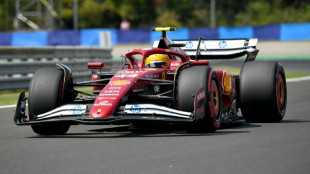
-
 Chelsea sign Dutch defender Hato from Ajax
Chelsea sign Dutch defender Hato from Ajax
-
'Fantastic Four' stretches lead to 2nd week at N.America box office

-
 Japan's Yamashita wins Women's British Open to clinch first major
Japan's Yamashita wins Women's British Open to clinch first major
-
Netanyahu asks ICRC for help after 'profound shock' of Gaza hostage videos

-
 French rider Ferrand-Prevot solos to victory in women's Tour de France
French rider Ferrand-Prevot solos to victory in women's Tour de France
-
Oval downpour leaves England-India series on knife edge

-
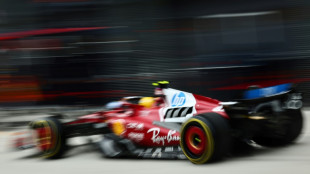 Despondent Hamilton and Ferrari crash back to earth
Despondent Hamilton and Ferrari crash back to earth
-
Norris relishing combat with McLaren teammate Piastri
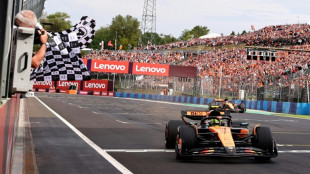
-
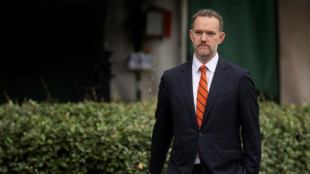 US trade advisor says Trump tariff rates unlikely to change
US trade advisor says Trump tariff rates unlikely to change
-
Norris wins in Hungary to trim Piastri lead as McLaren reel off another 1-2

-
 Norris wins Hungarian Grand Prix in another McLaren 1-2
Norris wins Hungarian Grand Prix in another McLaren 1-2
-
Brook and Root run riot as England eye stunning win in India decider

-
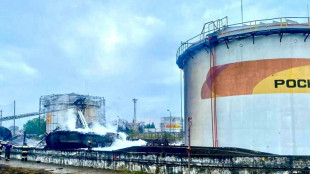 Ukrainian drones spark fire at Sochi oil depot
Ukrainian drones spark fire at Sochi oil depot
-
Lando Norris wins Hungarian Grand Prix in another McLaren 1-2

| JRI | -0.23% | 13.1 | $ | |
| RBGPF | 0% | 74.94 | $ | |
| CMSD | 0.34% | 23.35 | $ | |
| SCS | -1.47% | 10.18 | $ | |
| VOD | 1.37% | 10.96 | $ | |
| BCC | -0.55% | 83.35 | $ | |
| RYCEF | 0.07% | 14.19 | $ | |
| CMSC | 0.09% | 22.87 | $ | |
| NGG | 1.99% | 71.82 | $ | |
| SCU | 0% | 12.72 | $ | |
| RIO | -0.2% | 59.65 | $ | |
| GSK | 1.09% | 37.56 | $ | |
| AZN | 1.16% | 73.95 | $ | |
| BTI | 1.23% | 54.35 | $ | |
| RELX | -0.58% | 51.59 | $ | |
| BP | -1.26% | 31.75 | $ | |
| BCE | 1.02% | 23.57 | $ |

How Switzerland's Birch glacier collapsed
A cascade of events in the Swiss Alps led to the dramatic collapse of the Birch glacier, wiping out Blatten village in the valley below, glaciologists and geoscientists told AFP on Friday.
Experts knew days ahead of Wednesday's landslide that the glacier was likely to suffer a catastrophic failure. But the reasons why date back much further.
There are strong theories on the causes, and to what degree the disaster is linked to climate change -- but these are yet to be confirmed by scientific analysis.
"This can be considered as a cascading event, because we have different processes involved," explained Christophe Lambiel, senior lecturer at the University of Lausanne's Institute of Earth Surface Dynamics.
- Mountain above the glacier -
The 3,342-metre (10,965-foot) high Kleines Nesthorn mountain above the glacier was already somewhat unstable, and rockfalls accelerated dramatically around 10 days beforehand.
Experts feared a total collapse within hours, but instead there were successive rockfalls over several days, which was actually the best-case scenario.
- Rockfall onto glacier -
Three million cubic metres of rock were deposited on the glacier.
"If you put a lot of weight on an unstable foundation, it can just slip away. And this is what actually happened," Matthias Huss, the director of Glacier Monitoring Switzerland (GLAMOS), told AFP.
"The glacier accelerated strongly in response to this additional loading, and then the disaster struck."
- The Birch glacier -
The Birch glacier was a special case: the only Swiss glacier that was advancing rather than shrinking. However, this was not because of extra snowfall.
Its advance "was quite likely due to the pre-loading with rockfalls from this mountain, which has finally collapsed. So the landslide didn't start from nothing," said Huss.
The glacier was on a steep slope, and even steeper at the front, worsening the dynamics.
Smaller-scale falls from the front of the glacier Tuesday were expected to continue, with Wednesday's sudden total collapse considered a less-probable scenario.
- How the glacier collapsed -
The rockfalls altered the stress equation between the weight of the glacier and the slope, which governs its forward speed, Lambiel told AFP.
Like pushing a car, it takes a lot of force to initiate movement, but less once it is on the move, he explained.
Huss said the 1,000 metres of elevation between the glacier and the Lotschental valley floor added a "huge amount of potential energy", which through friction melts part of the ice, making the fall "much more dynamic than if it was just rock".
- Role of melting permafrost -
Permafrost conditions are degrading throughout the Alps. Ice inside the cracks in the rocks has been thawing to ever-deeper levels over the last decade, especially after the summer 2022 heatwave.
"Ice is considered as the cement of the mountains. Decreasing the quality of the cement decreases the stability of the mountain," said Lambiel.
Huss added: "At the moment, we can't say it's because of permafrost thaw that this mountain collapsed -- but it is at least a very probable explanation, or one factor, that has triggered or accelerated this process of the mountain falling apart."
- Role of climate change -
Jakob Steiner, a geoscientist at the University of Graz in Austria, told AFP: "There is no clear evidence as of yet, for this specific case, that this was caused by climate change."
Huss said making such a direct link was "complicated".
"If it was just because of climate change that this mountain collapsed, all mountains in the Alps could collapse -- and they don't," he said.
"It's a combination of the long-term changes in the geology of the mountain.
"The failing of the glacier as such -- this is not related to climate change. It's more the permafrost processes, which are very complex, long-term changes."
Lambiel said of a link between climate change and the glacier moving forward over time: "Honestly, we don't know.
"But the increasing rockfalls on the glacier during the last 10 years -- this can be linked with climate change."
- Other glaciers -
Modern monitoring techniques detect acceleration in the ice with high precision -- and therefore allow for early warning.
Lambiel said around 80 glaciers in the same region of Switzerland were considered dangerous, and under monitoring.
"The big challenge is to recognise where to direct the detailed monitoring," said Huss.
Lambiel said sites with glacier-permafrost interactions above 3,000 metres would now need more research. But they are difficult to reach and monitor.
Steiner said: "Probably the rapidly changing permafrost can play some kind of role.
"This is concerning because this means that mountains are becoming a lot more unstable."
rjm-burs/phz/jhb
P.Tamimi--SF-PST

